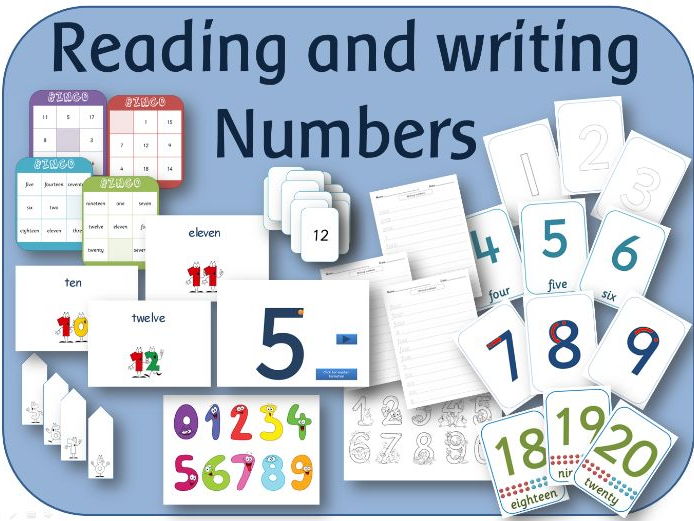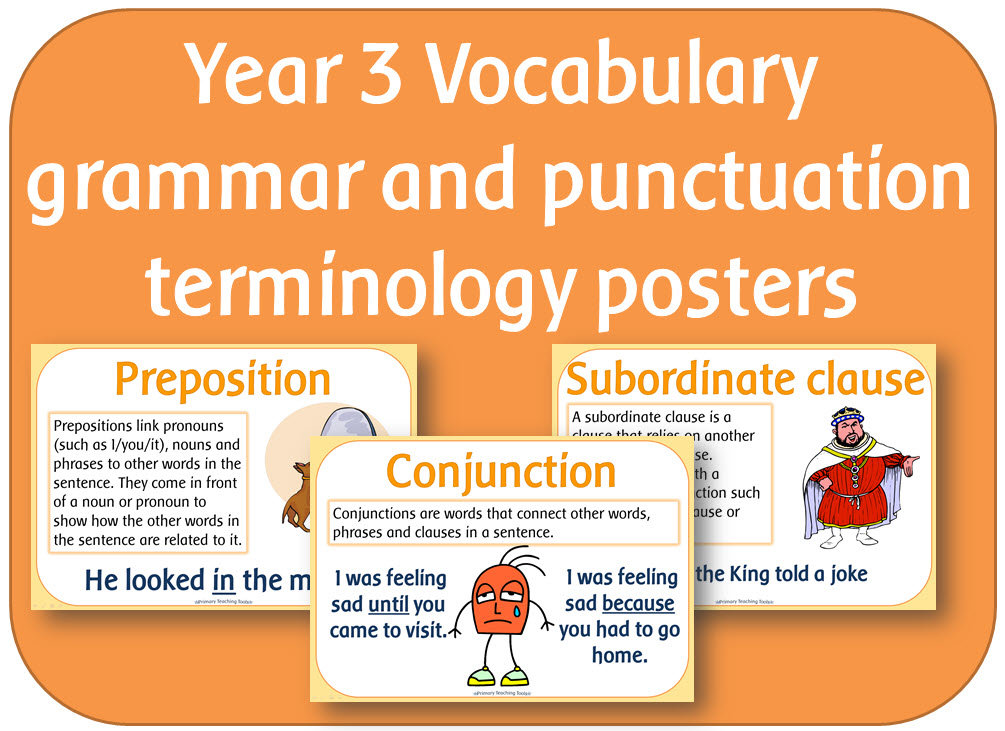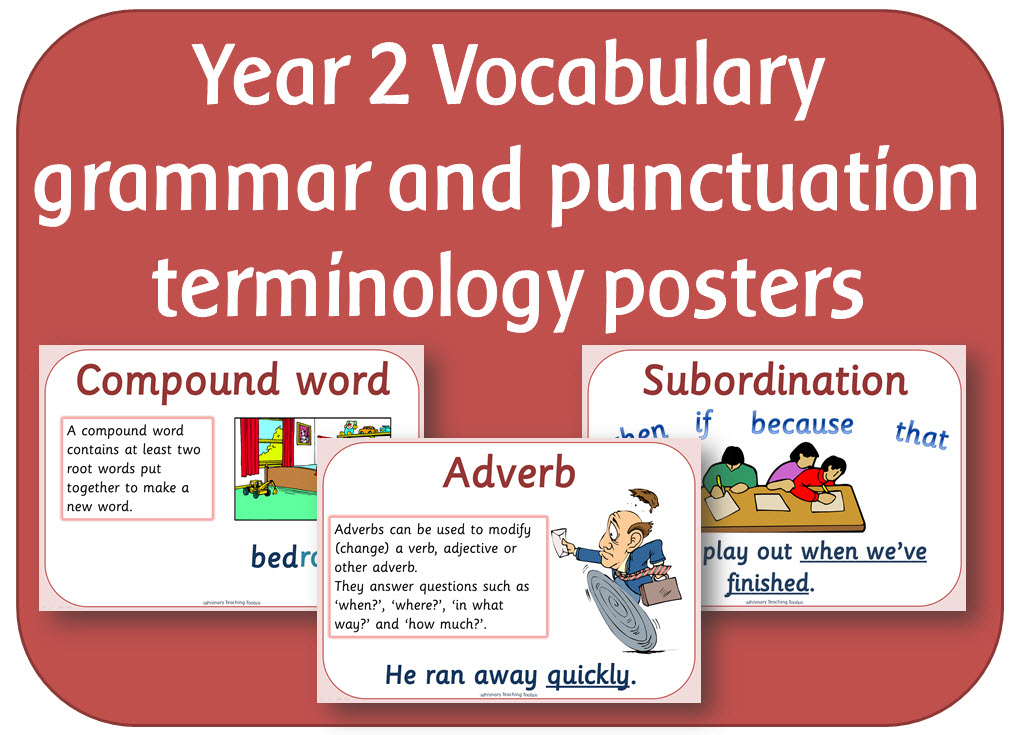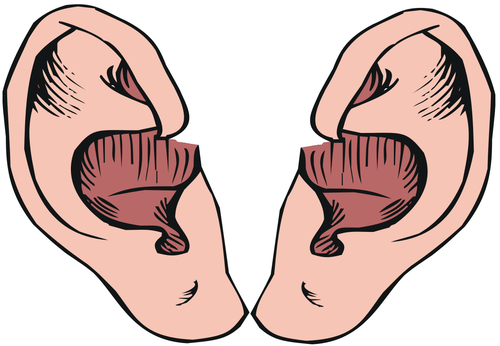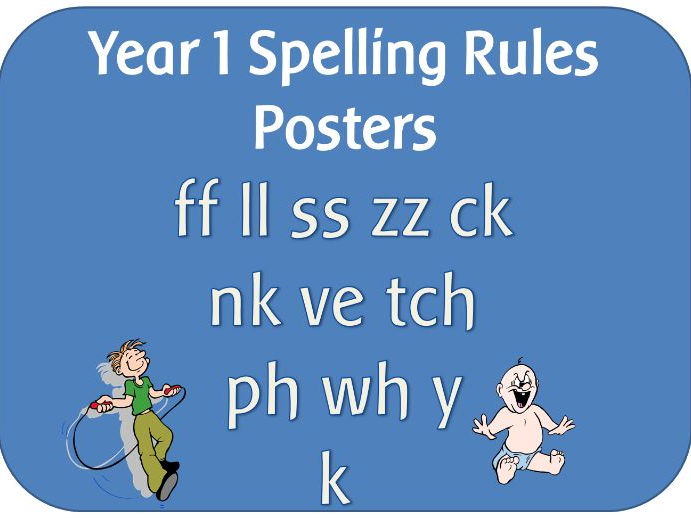
404Uploads
1062k+Views
679k+Downloads
English language arts

SPaG Year 4 Punctuation: Apostrophes to mark plural possession lesson, activity and display
A powerpoint lesson and worksheet to explain who apostrophes mark plural possession.
POWERPOINT:
Possessive apostrophes with plural words: Explains what they are and how they are used. Ends with an activity to rewrite phrases using possessive apostrophes.
PDF ACTIVITY:
Possessive apostrophes with plural words: Similar activity to the PowerPoint above.
DISPLAY
Plural possessive apostrophes posters

Year 1 Maths Reading and Writing numbers lesson, activity and display pack
This pack contains over 30 resources to teach the objectives for reading and writing numbers to 20 in Y1.
The set contains:
POWERPOINT PRESENTATIONS x 8
Number formation: Interactive activity which demonstrates correct numeral formation
Writing numbers in words to 10: pictures and written number names
Writing numbers in words 11-20: pictures and written number names
Numbers and number names to 10: pictures, numerals and written number names
Numbers and number names 11-20: pictures, numerals and written number names
Number flashcards x 3: To 20, to 50 and to 100. Each shows random numbers for children to recognise
ACTIVITIES and WORKSHEETS
Bingo: 3 versions; in digits, in written numbers and a blank version so the children can choose numbers to put in.
Coloured digits: for cutting and sticking activities
Number cards to 10: 2 versions, one in digits, one in words for matching games
Number bookmarks: Number characters to colour in; to 20
Large hollow numbers: for play dough activities, tracing, colouring in etc
4 x handwriting worksheets to practice writing digits
4 x worksheets to practice writing numbers to 20
DISPLAY
Number formation display
Numbers in digits and words display
Numerals, words and counters display

Huge Christmas pack - cards, colouring, display, activities and powerpoints
A bumper set of interactive whiteboard, display and printable crafts and activities, suitable for KS1 or lower KS2. The pack includes:
CHRISTMAS / NATIVITY POWERPOINTS:
5 Little Reindeer
Can you solve the problems for Santa - 15 problem solving questions (Suitable for Y1, but you could adapt it for other years)
Christmas around the World - How Christmas is celebrated in 12 other countries
Christmas Carols - Words for Silent Night; The First Noel; We Three Kings; Away in a Manger
Christmas Songs - Words for Frosty the Snowman; Jingle Bells; Must be Santa; Rudolph the red-nosed reindeer; We wish you a Merry Christmas
Christmas Facts - Interesting facts about Christmas
Jingle Bells - The song
The Nativity Story
The Three Kings poem
Twinkle Twinkle
Winter Poetry
Who wants to be a millionaire Christmas quiz
CHRISTMAS HEADINGS:
The Three Wise Men / Christmas / The Nativity
A-Z LETTERING - Includes all upper and lower cases, numbers and punctuation.
Baubles / Christmas / Reindeer / Snowflake / Snowmen / Christmas Stockings.
NATIVITY WORD MAT
Contains 27 words with accompanying pictures
CHRISTMAS CARDS:
A set of 12 different designs for the children to colour, paint or decorate.
Each card contains ‘Merry Christmas’ lettering, which can be coloured in; and a black and white image of either:
Three Wise men / Baby Jesus / Baubles / Bells / Reindeer / Santa / Star / Stocking / Tree /Tree and doves / Tree scene.
All you need to do is print them out and let the children choose a design
CHRISTMAS ACTIVITIES:
A range of Christmas activities to make and do
ACTIVITES:
Christmas Alphabet / Christmas code breaker / Christmas tree poem / Christmas wordsearch - 3 different versions.
FOR MAKING LISTS:
Santa list x3 versions / Santa beard list / Santa star list / Tree list
FOR WRITING A LETTER TO SANTA:
Santa letter 1 / Santa letter 2
A4 WRITING SHEETS:
Christmas border / Elves and lights border / Santa border / Star border / Stocking border
PRINTABLE COLOURING ACTIVITIES:
Christmas colouring - 13 various pictures / Nativity colouring - 12 pictures / Elves colouring - 7 pictures / Snowmen colouring - 6 pictures / Reindeer colouring - 7 pictures / Santa colouring - 10 pictures / Plus 7 assorted sheets with accompanying title to colour.

Year 3 Vocabulary grammar and punctuation terminology posters
A set of A4 posters to print and display.
They contain all the 'terminology for pupils' identified in Appendix 2 for Year 3:
Adverb; Preposition; Conjunction; Word family; Prefix; Clause; Subordinate clause; Direct speech; Vowels; Consonants; Inverted commas/speech marks; Nouns; Present perfect; Punctuation

Year 1 Vocabulary grammar and punctuation terminology posters
A set of A4 posters to print and display.
They contain all the 'terminology for pupils' identified in Appendix 2 for Year 1:
Letter; Capital letter; Singular; Plural; Plural noun suffix; Word; Sentence; Punctuation; Full stop; Question Mark; Exclamation Mark; Suffix; Verbs; Adjective; Clause and Pronoun.

Year 2 Vocabulary grammar and punctuation terminology posters
A set of A4 posters to print and display.
They contain all the 'terminology for pupils' identified in Appendix 2 for Year 2:
Noun; Noun phrase; Statement; Question; Exclamation; Command; Compound word; Adjective; Verb; Suffix; Adverb; Tense; Apostrophe; Comma; Subordination; Co-ordination; Progressive; Sentence.

SPaG Year 2 Spelling: Homophones and near homophones
Resources to teach a variety of homophones and near homophones
POWERPOINT
Introduction to homophones: Explains why the English language has so many homophones
Year 2 Homophones with pictures: Includes be/bee, been/been, bare/bear, blew/blue, for/four, here/hear, knew/new, night/knight, know/no, one/won, pair/pear, plain/plane, quite/quiet, red/read, right/write, sea/see, where/wear, so/sew/saw, some/sum, son/sun, tail/tale, their/they're/there, through/threw, to/too/two, week/weak and which/witch
Writing sentences with homophones: Activity for sentence writing
The following powerpoints look at individual pairs/trios of homophones, explaining the differences, and giving sentences at the end to choose which one is the correct word:
Homophones they're their there
Homophones hear and here
Homophones son and sun
Homophones to two and too
Homophones be and bee
ACTIVITIES
Homophone cards with pictures
Homophone cards (just words)
TEACHER RESOURCES
Y2 Spelling Appendix: An adaptable outline plan
Word List - With relevant words

Guy Fawkes, Bonfire Night and the Gunpowder Plot - 2 powerpoints, 12 display files and 15 activities
A powerpoint story of Guy Fawkes, the Gunpowder Plot and why we celebrate Bonfire Night, with classroom activities to print and display resources.
Guy Fawkes - Two versions; one for KS1 and one for KS2. It details Guy Fawkes' life, and how he became involved with the other conspirators of the Gunpowder Plot; it explains how he was caught, and why people now celebrate Bonfire Night.
ACTIVITIES:
Bonfire night acrostic poem
Bonfire Night topic cover
Fire border for displaying work
Fireworks border
Gunpowder plot and Guy Fawkes sequencing
Gunpowder plot black and white pictures (for colouring/display)
Gunpowder plot cards
Gunpowder plot word mat
Guy Fawkes topic cover
Letter to Mounteagle
Newspaper report x 4 - Guy Fawkes, The arrest and The conspirators
Blank scroll
DISPLAY
A-Z Flame lettering
Bonfire Night banner
A4 title
Large lettering Bonfire Night
Fireworks border for displays
Confession letter of Guy Fawkes
Guy Fawkes title
Main conspirators poster
Portraits of James I and Guy Fawkes
Posters - Guy Fawkes and the Gunpowder plot
The Fireworks code
The Gunpowder plot pictures

SPaG Year 1 Spelling pack: Revision of work covered in Reception powerpoints and activities
A set of resources to recap work covered in Reception:
POWERPOINTS: Each PowerPoint lesson contains decodable high frequency words the children will be familiar with. The children are asked to read and then write the words.
• SET 1 Two letter words
• SET 2 CVC words 1
• SET 3 CVC words 2
• SET 4 CVC words 3
• SET 5 Consonant digraph words
• SET 6 Adjacent consonants
• SET 7 Adjacent consonants 2
• Words with adjacent consonants: An organised list of words containing adjacent consonants for extra reading practice.
GAMES / ACTIVITIES:
• Word cards (x7): There is a set of cards for each set of words.
• Sets 1-7 HFW lists: Can be used for spelling lists for the children.

Introduction to reading and writing sentences Y1 Year 1
These resources introduce the concept of a sentence and show how to write a sentence.
POWERPOINTS:
Introduction to sentences: Explains what sentences and punctuation are. It reinforces the importance of capital letters, full stops, question marks or exclamation marks, and spaces in-between words.
How to compose a sentence: Introduces the concept of sentence writing, and how the children should think about and then say the sentence before they write it down, remembering to read through and check their work when finished.
“I can” sentences: simple sentences for the children to read. The vocabulary gets progressively harder, from simple CVC words to using long vowel graphemes and blends.
Jake’s Full Stop: A story demonstrating how important it is to put full stops in the right places.
Picture sentences: Find the correct sentence out of four to match the picture.
Joining sentences with ‘and’: Demonstrates how text can become more interesting when ‘and’ is used to join sentences. Ends with sentences for the children to join with the word and.
Words that fit: Find the words that can be substituted in the sentence.
Sentence building: Jumbled up words that need arranging into sentences. Suitable for a class writing activity.
WORKSHEETS (PDF) - to accompany the PowerPoints
Worksheets: 15 different worksheets to accompany the lessons, including -
A checklist when writing sentences
Finish the ‘I can’ sentences
Write the words that fit
Write sentences about a picture
Punctuation story
Match the sentences
Cut and make a sentence
The worksheets are in both colour and black and white.
Some of the PowerPoints include a linked video to watch. This is a link shared through SafeShare T.V., a program that filters adverts and unwanted commercials from the clip. You may need to check if you can access this in school.
The links were checked before uploading, but if any don’t work, feel free to contact me.

Letters and Sounds Phase 4: Reading and writing CVCC words
A variety of interactive and printable activities for reading and writing words ending with adjacent consonants.
Includes:
In the box games
Matching words and pictures games
Buried treasure game
Writing activities
Phoneme frames

SPaG Year 2 Spelling: Adding –es to nouns and verbs ending in –y
3 powerpoint lessons looking at how to add -es to nouns and verbs, with activities, planning and word list.
ADDING -ES TO NOUNS:
POWERPOINTS
Adding es to nouns ending in y
Plurals recap - adding es
ACTIVITIES
Adding es to nouns ending in y worksheet
Singular and plural cards
ADDING -ES TO VERBS:
POWERPOINT
Adding es to verbs ending in y
ACTIVITIES
Adding es to verbs ending in y worksheet
TEACHER RESOURCES
Y2 Spelling Appendix: Adding es to nouns and verbs ending in y- An adaptable outline plan
Word List - With relevant words ending in y.

SPaG Year 3 Grammar: Formation of nouns using a range of prefixes
The first powerpoint recaps the terminology noun and prefix then explains how prefixes are added to words and change their meaning. Gives some examples of words with the prefixes super, auto, anti and tele and asks how the meanings have changed.
The second powerpoint looks at a range of prefixes the children should have covered in Y2 and introduces new ones alongside their meanings.
PDF WORKSHEETS & ACTIVITIES:
Word list – nouns using prefixes
Fore/mid/sub jigsaw cards
Super/auto/anti jigsaw cards
Prefix anti worksheet
Prefix auto worksheet
Prefix super worksheet
DISPLAY:
Noun prefixes display
Plus a Y3 VG&P plan

SPaG Year 1 Grammar: Suffixes
3 powerpoint lessons looking at suffixes that can be added to verbs without any change in spelling of the root word, plus a jigsaw activity and plan.
This set contains the following PowerPoints:
The suffix ed: Explains what a suffix is, and what meaning the suffix ed adds to verbs, giving examples and an activity
The suffix er: Explains what a suffix is, and what meaning the suffix er adds to nouns, giving examples and an activity
The suffix ing: Explains what a suffix is, and what meaning the suffix ing adds to verbs, giving examples and an activity
Activity cards (pdf)
Jigsaw cards - root words and suffixes er ing ed

Phase 1 Aspect 1 Environmental Sounds Letters and Sounds Phonics resource pack
A mixture of powerpoints and printable activities to encourage sound discrimination by listening to sounds in the environment.

Phonics flashcards
A set of phonics display/flashcards to use in KS1.
There are 2 A5 cards on a page. Each card contains pictures and a list of words including the relevant common exception words for Year 1.
The first set contains the letters of the alphabet.
The second set contains the consonant digraphs and vowel digraphs and trigraphs in the Y1 Spelling appendix.
The third set contains extra graphemes identified in the Letters and Sounds phonics programme.

Phase 3 Letters and Sounds phonic resources: set 7 letters- y z zz qu - activity pack
Each introductory powerpoint introduces the new letter, shows a picture mnemonic, demonstates correct letter formation then reinforces it with an initial sound game.
Also in the pack:
A powerpoint showing each letter in the set with a picture to help the children remember the sound;
Phase 2 letters to recap
A set of letter flashcards of all letters learnt so far
Wlhat's in the Box game
Buried Treasure game - printed and interactive
Matching words and pictures to print
Letter fans
Treasure chest and bin
Captions using sets 1-7 letters
Yes/ No questions & game

Phase 3 Letters and Sounds phonic resources: Graphemes oi ear air ure er powerpoints
Each introductory powerpoint introduces the new grapheme; shows a mnemonic and a game where the children have to select the correct object to match the words.
Also in the pack:
A powerpoint showing each grapheme in the set with a picture to help the children remember the sound;
A set of grapheme flashcards
What's in the Box games
Writing words activities
Matching words and pictures

Letters and Sounds Phase 4: Reading and writing sentences
A variety of interactive and printable activities for reading and writing sentences containing words with adjacent consonants.
Includes:
Sentence substitution
Matching pictures and sentences
Writing and reading sentence games
Yes/No questions

Year 1 Spelling Rules display poster pack - ff ll ss zz ck nk ve tch ph wh y k
A pack of 12 A4 posters covering the spelling rules:
The /f/, /l/, /s/, /z/ and /k/ sounds are usually spelt as ff, ll, ss, zz and ck if they come straight after a single vowel letter in short words.
The /ŋ/ sound can be spelt n before k.
The /tʃ/ sound is usually spelt as tch if it comes straight after a single vowel letter.
English words hardly ever end with the letter v, so if a word ends with a /v/ sound, the letter e usually needs to be added after the ‘v’.
The /f/ sound is not usually spelt as ph in short everyday words (e.g.
fat, fill, fun).
‘wh’ can make the same sound as ‘w’.
When a word ends in an /i:/(‘ee’) or /ɪ/ (‘i’) sound, it can be spelt -y
Each poster states the rule and gives examples of each type of words, with accompanying pictures.
Each set comes with an A4 heading.


